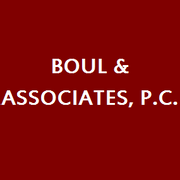There are two things that stop creditors: first, the Automatic Stay and then later, the Discharge.
The Automatic Stay. Federal Bankruptcy Law forbids creditors from engaging in any collection efforts against a debtor in bankruptcy. This protection is immediate and automatic. We call it, the "automatic stay." Once a creditor receives notice that a debtor filed a bankruptcy petition, the creditor must cease and desist all collection efforts, or risk being held in contempt of court and subjected to sanctions.
The Discharge. At the end of a bankruptcy case, the discharge replaces the automatic stay. It forbids creditors from ever engaging in any collection efforts on any dischargeable debt that was included in the bankruptcy discharge. Some debts are not dischargeable, for example, child support, federal student loans and certain taxes. Debts included in the bankruptcy and discharge are the debts that existed on the date the debtor filed the bankruptcy petition.
A Note About Liens. Dischargeable unsecured debts simply go away. However, debts secured by collateral involve other considerations. The discharge cancels debts, not liens. So, when a creditor has a lien on property, such as a home mortgage lien or vehicle lien, that lien continues to exist. As a result, the debtor ordinarily has to continue making house and vehicle loan payments or surrender the collateral to the creditor.
Hiring a bankruptcy attorney is an important decision and should not be based solely on advertising. You want to find attorneys you can rely on. When you need effective, professional representation for your bankruptcy case, don’t hesitate to contact the law office of Boul & Associates, P.C. Call (573) 443-7000 to speak with an office representative or visit the firm online to learn more.
By Harry D. Boul, Esq.
Copyright June 17, 2017
About the Business
(56 reviews)
Have a question? Ask the experts!
Send your question

